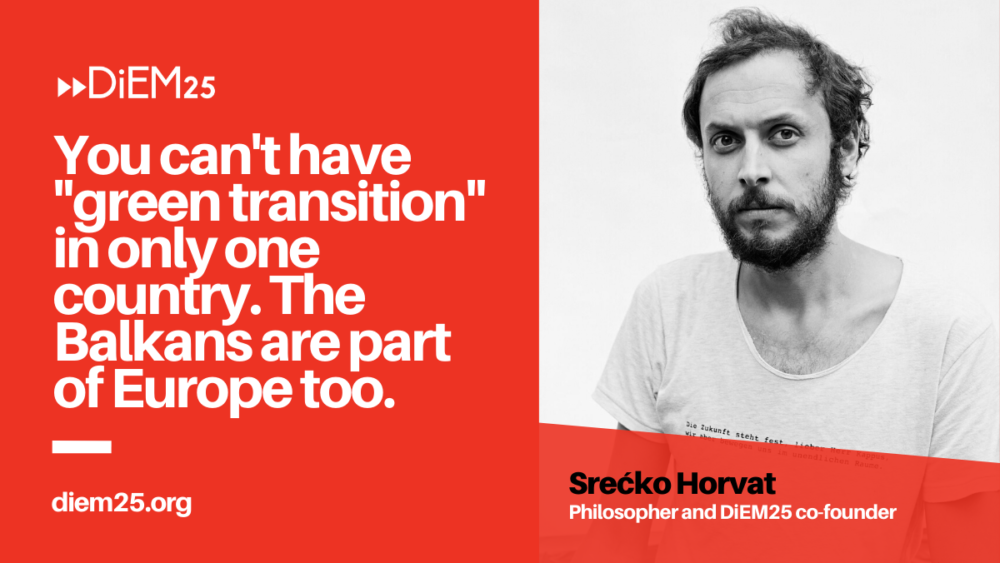In recent days, cities across the Balkans have been smothered in deadly smog. Residents have been unable to leave their homes and the government has issued official warnings.
Emergency measures were taken in the Bosnian capital Sarajevo over the weekend with the Serbian government calling an emergency meeting on Wednesday, as pollution levels peaked.
Solidarity with my friends in #Belgrade who are suffering the worst air pollution in this city. While the #EU is at least discussing a much needed Green New Deal, the periphery – other Balkan cities too (#Sarajevo, #Zagreb, etc) – is suffocating. Join the protests by @nedavimobgd pic.twitter.com/EZYJdDYNNm
— Srećko Horvat (@HorvatSrecko) January 16, 2020
According to a report by the UN Environment Programme last year, Sarajevo has one of the highest levels of air pollution in Europe. People in the Western Balkans lose on average up to 1.3 years of their lives because of air pollution.
The Croatian police on Wednesday also urged citizens living in the capital Zagreb to use public transport and avoid bicycles or scooters.
We believe that the European Union has a historical responsibility to support just transitions all around the continent — and beyond. As she announced her ‘green deal’, European Commission President Ursula von der Leyen said that “every continent has to find its own path” on climate. But no other country in the world can achieve a just transition on its own — even Europe suffers from a deeply unequal distribution of the burden of air pollution.
A Green New Deal for Europe must therefore also be a Green New Deal for Bosnia, a Green New Deal for Serbia and a Green New Deal for other countries whose citizens suffer from climate and environmental degradation.
This is why global climate justice is explicitly included in our programme as one of the 10 Pillars of the Green New Deal for Europe.
Our 10 Pillars of the Green New Deal for Europe say:
The environmental crisis is global and the Green New Deal must be global.
Europe has a historic responsibility and must lead this global effort. For more than two centuries, European countries have favoured aggressive pollution and raw material extraction and have accepted the considerable damage done to other countries. The Green New Deal for Europe must make good this colonial legacy. It must re-distribute funds to rehabilitate over-exploited regions, protect against rising sea levels and guarantee a decent standard of living for all climate refugees. And it must ensure that green change in Europe does not export pollution to other countries in the world and does not continue to rely on resources from the global South. The supply chain for energy change in Europe must be committed to the principles of social and environmental justice. Although we are proud to provide aid to the Global South, European companies benefit far more from interest demands, resource theft and wage dumping. In order to bring about global green change, the Green New Deal must put an end to these exploitative economic practices and finally respect human rights everywhere – thus paving the way for environmental justice throughout the world.
What applies to the global south applies equally to our neighbours in the Balkans. There where we have been disposing of our old diesel vehicles for years and where we engage in wage dumping with our production-intensive industries and their polluting industries, and where our factories contribute massively to local environmental pollution.
We must not ignore Europe’s historic responsibility towards the global South and the countries of Eastern Europe.
Srećko Horvat, Croatian philosopher and founding member of DiEM25 says:
“For years the EU has been silent about air pollution that is suffocating the Balkans. While Germany is going through an “Energiewende”, countries in the Balkans such as Serbia, Bosnia and Herzegovina, and Croatia are currently facing dangerous levels of air pollution, which is not only a result of incompetent governments but also of the great air divide between Western Europe and its periphery — namely the Balkans. These days, Balkan cities look rather like heavily-polluted cities in India or China. And, as people are turning to the streets, protesting against air pollution, both in Serbia and Bosnia, it is the EU that must put forward a much more transformative Green New Deal than the one proposed by Ursula von der Leyen. You can’t have “green transition” in only one country. The Balkans are a part of Europe too.”
Do you want to be informed of DiEM25's actions? Sign up here















